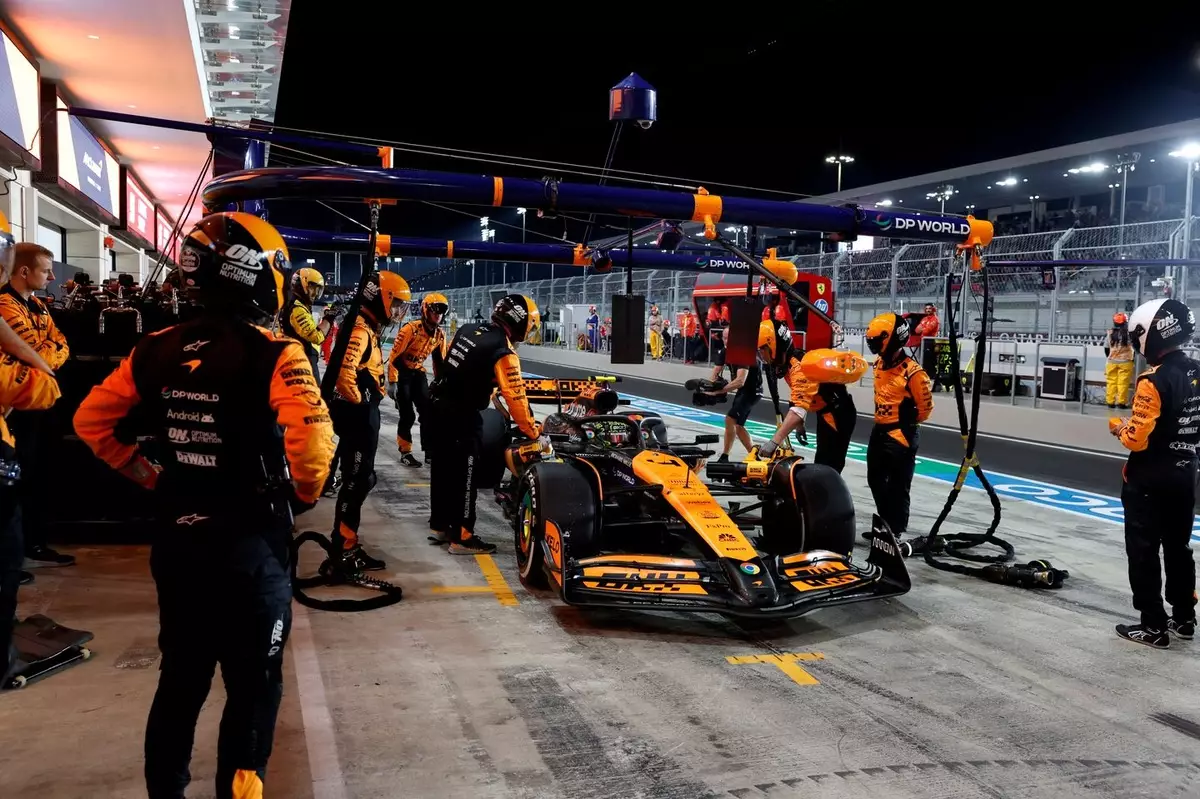Reassessing Penalties in Formula 1: A Call for Fairness and Consistency
Hey there, fellow racing enthusiasts! If you’re anything like me, you probably live for the thrill of Formula 1 races. It’s not just about the speed; it’s about the strategies, the skill, and yes, sometimes the controversies. Lately, one topic that’s been revving up conversations is the way penalties are handed out in F1. It’s a hot-button issue that gets fans and teams alike fired up. Recently, after Lando Norris’s penalty at the Qatar Grand Prix, this debate has come roaring back to life.
As someone who’s followed F1 for years, I know how crucial these penalties can be. They don’t just affect a single race; they can shift entire championship standings. So when McLaren’s Andrea Stella raised concerns about Norris’s penalty, it resonated with many of us who are passionate about fairness in sports. Stella isn’t just questioning a single decision; he’s calling for a reevaluation of how these decisions are made across the board. And honestly, it’s hard not to agree.
Key Takeaways
- The debate over penalty fairness in F1 has been reignited by recent events.
- Inconsistencies in penalties can impact race outcomes and team morale significantly.
- Teams are advocating for clearer guidelines to ensure consistency and fairness.
The Incident that Sparked a Debate
Lando Norris’s recent experience during the Qatar GP is a textbook example of why this issue matters. He received a 10-second stop-go penalty after failing to slow down for double yellow flags due to Alex Albon’s incident on track. While Norris’s infraction was clear, many argue that the penalty’s severity was excessive. It raises the question: Are these penalties really proportional to the infractions? In a sport where every second counts, such a harsh penalty can drastically alter race results and even championship outcomes.

Voices from the Paddock
Andrea Stella’s concerns resonate with many in the F1 community. He argues that without consistency in penalizing infractions, the sport risks losing its competitive balance. It’s not just about one team or one driver; it’s about maintaining fairness across the board. Toto Wolff from Mercedes echoed similar sentiments, emphasizing that inconsistent penalties could undermine the sport’s integrity. When team leaders voice such concerns, it highlights a systemic issue that needs addressing to preserve F1’s reputation.
The Impact of Penalties on Teams and Fans
Mishandled penalties extend their reach beyond immediate race results—they influence team strategies and driver morale as well. When penalties feel disproportionate or arbitrary, they spark discussions about what fairness really means in sports regulations. Andrea Stella suggests that without clarity and proportionality in penalties, disillusionment among teams and fans is inevitable. In any sport, but especially one like F1 that thrives on precision and excitement, these concerns can’t be ignored if we want to keep fans engaged and sponsors happy.

The Role of FIA in Ensuring Fair Play
The FIA holds significant power as F1’s governing body, which places immense responsibility on its shoulders to act judiciously when it comes to regulating penalties. The call from teams like McLaren for a review isn’t merely self-serving; it’s a plea for an environment where competition is fair and transparent. Stella stressed the importance of having documented procedures for penalizing infractions to avoid arbitrary decisions that could harm F1’s credibility. This isn’t just about fixing past mistakes—it’s about shaping a better future.
A Path Towards Consistency
The calls for reassessment from teams like McLaren and Mercedes aren’t focused solely on overturning past decisions but rather on fostering long-term improvements in how penalties are issued. There’s an opportunity here for the FIA to set clear guidelines that ensure consistency in how offenses are punished. Ideas such as establishing an independent committee to evaluate penalty decisions or enhancing communication strategies could be game-changers in clarifying how penalties are applied across all teams.

Final Thoughts
The ongoing discussion around Formula 1 penalties reveals deeper issues about fairness, consistency, and integrity within the sport. As teams continue to advocate for change, it’s crucial for the FIA to listen and respond proactively. By committing to fair play and proportionality, they can help maintain F1’s competitive edge while keeping fans engaged and excited about future races. With thoughtful reviews and reforms, Formula 1 can enhance its standing as a thrilling motorsport loved by millions worldwide.
Formula 1
FIA regulations
racing fairness
sports integrity
penalty consistency


Leave a Reply